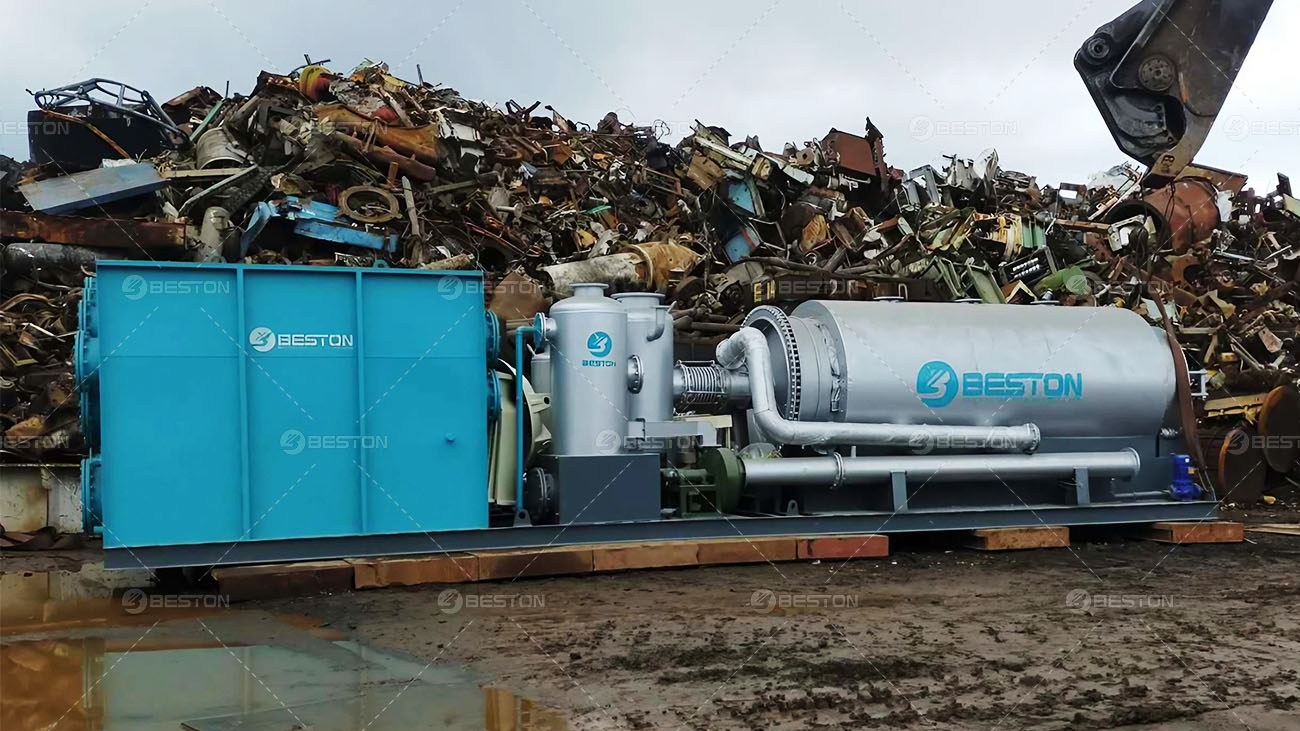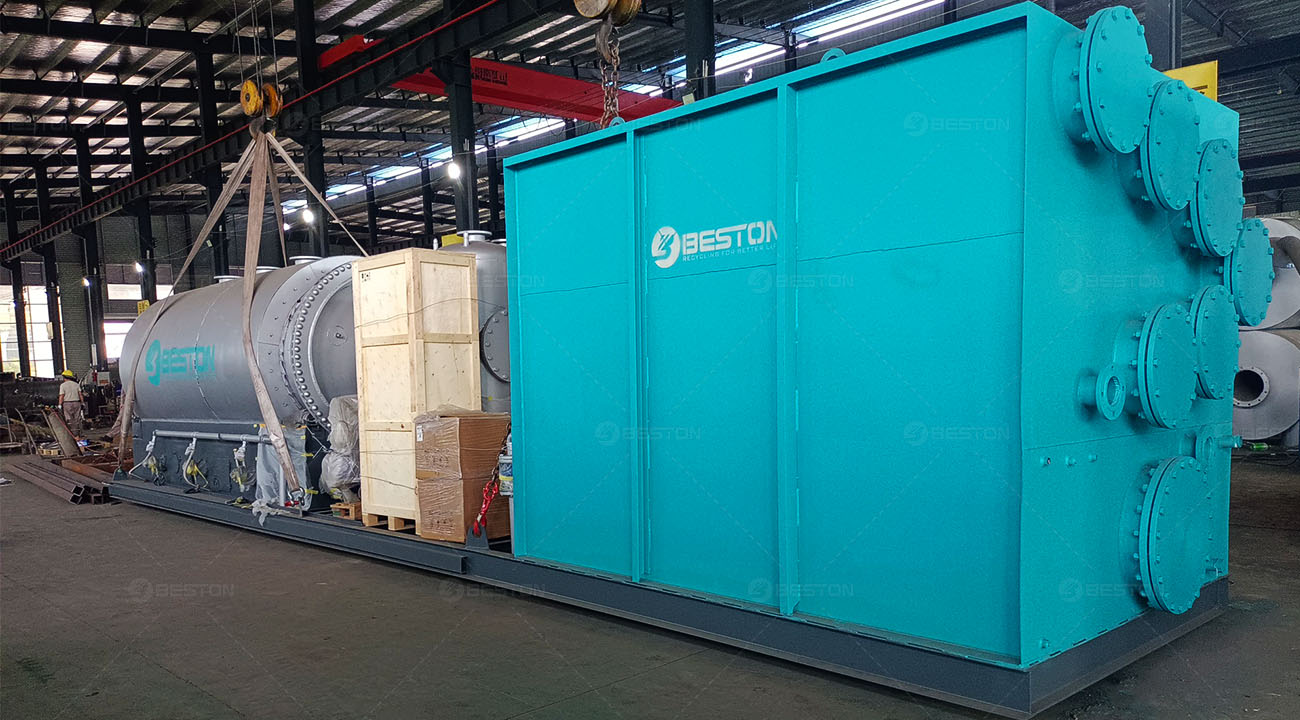In an era marked by environmental consciousness and resource optimization, the mobile pyrolysis unit stands as a beacon of innovation and efficiency. This technology offers a versatile solution for waste management, transforming a variety of organic materials into valuable by-products such as biochar, bio-oil, and syngas. This article delves into the various investment scenarios for a mobile pyrolysis unit, examining its potential in different contexts and highlighting the benefits and considerations for investors.

Understanding Mobile Pyrolysis Unit
A mobile pyrolysis unit is a compact, transportable facility designed to convert biomass and other organic waste into renewable energy products. The core process, pyrolysis, involves the thermal decomposition of organic material in the absence of oxygen, resulting in the production of biochar, bio-oil, and syngas. These products have multiple applications across various industries, making the mobile pyrolysis unit a highly attractive investment.
Key Features and Advantages
- Portability: Unlike stationary pyrolysis plants, mobile units can be transported to different locations, providing flexibility in operations. This is particularly advantageous for handling waste in remote or rural areas.
- Scalability: Mobile pyrolysis units can be scaled up or down based on the volume of waste to be processed, offering adaptability to different project sizes.
- Environmental Impact: By converting waste into useful products, mobile pyrolysis units help reduce landfill usage and greenhouse gas emissions, contributing to environmental sustainability.
Investment Scenarios
Agricultural Sector
The agricultural sector generates significant amounts of organic waste, including crop residues, animal manure, and forestry by-products. Investing in a mobile pyrolysis unit in this sector can provide multiple benefits:
- Biochar Production: Biochar can be used as a soil amendment to improve soil health, enhance water retention, and increase crop yields. This makes it a valuable product for farmers looking to enhance their agricultural productivity.
- Waste Management: Mobile pyrolysis units offer an effective solution for managing agricultural waste on-site, reducing the need for transportation and disposal costs.
- Renewable Energy: The syngas produced can be used as a renewable energy source to power farm operations, reducing dependency on fossil fuels.
Municipal Waste Management
Municipalities are increasingly seeking sustainable solutions for managing urban waste. A mobile pyrolysis unit presents a viable option for local governments and waste management companies:
- Reduced Landfill Pressure: By converting organic municipal waste into biochar, bio-oil, and syngas, the pressure on local landfills is significantly reduced.
- Revenue Generation: The sale of pyrolysis products can generate additional revenue streams for municipalities, offsetting the costs of waste management.
- Environmental Compliance: Mobile pyrolysis units help municipalities meet stringent environmental regulations by minimizing waste and emissions.
Industrial Applications
Industries such as forestry, food processing, and paper production generate large quantities of organic waste. A mobile pyrolysis unit can be a strategic investment for these industries:
- Resource Recovery: Pyrolysis allows for the recovery of valuable resources from industrial waste, reducing overall waste disposal costs.
- Energy Production: The syngas and bio-oil produced can be used as alternative energy sources within industrial processes, promoting energy efficiency and sustainability.
- Corporate Social Responsibility: Investing in a mobile pyrolysis unit enhances an industry’s environmental credentials, demonstrating a commitment to sustainable practices.
Financial Considerations
Initial Investment and Operating Costs
The cost of acquiring and setting up a mobile pyrolysis unit can vary depending on the size and capacity of the unit. Investors need to consider:
- Capital Expenditure: The initial investment includes the cost of the unit, transportation, and installation. Smaller units may be more affordable but may offer limited processing capacity.
- Operational Costs: These include maintenance, labor, and energy costs associated with running the unit. Efficient operations can help mitigate these expenses.
Return on Investment
The return on investment (ROI) for a mobile pyrolysis unit depends on several factors:
- Market Demand: The demand for biochar, bio-oil, and syngas in the local and global markets influences the revenue potential.
- Regulatory Incentives: Government incentives and subsidies for renewable energy projects can enhance the financial viability of the investment.
- Operational Efficiency: Efficient management of the pyrolysis process and optimization of output can improve ROI.
Risk Assessment
Investors should conduct a thorough risk assessment to identify potential challenges and mitigate risks:
- Technological Risks: Ensuring the reliability and performance of the mobile pyrolysis unit is crucial. Investing in high-quality, tested technology can reduce operational risks.
- Market Fluctuations: Fluctuations in the prices of pyrolysis products can impact revenue. Diversifying product applications can help manage this risk.
- Regulatory Changes: Changes in environmental regulations and policies can affect the operation and profitability of the mobile pyrolysis unit. Staying informed about regulatory trends is essential.
Future Prospects
The future of mobile pyrolysis units looks promising, driven by technological advancements and growing environmental awareness. Emerging trends include:
- Automation and Digitization: Integrating advanced control systems and digital monitoring can enhance the efficiency and reliability of mobile pyrolysis units.
- Hybrid Models: Combining mobile units with stationary pyrolysis plants can offer a flexible and scalable waste management solution.
- Expanding Applications: Exploring new applications for pyrolysis products, such as in construction materials and carbon sequestration, can open up additional revenue streams.

Conclusion
Investing in a mobile pyrolysis unit presents a compelling opportunity for various sectors, from agriculture to municipal waste management and industrial applications. The flexibility, scalability, and environmental benefits of mobile pyrolysis units make them an attractive option for forward-thinking investors. By carefully considering financial aspects and conducting thorough risk assessments, investors can harness the full potential of this innovative technology and contribute to a more sustainable future. For more product information, please visit: https://bestonmachinery.com/